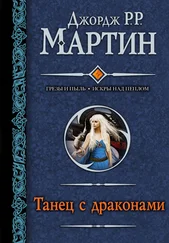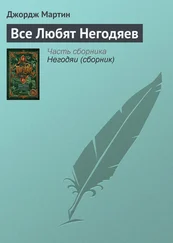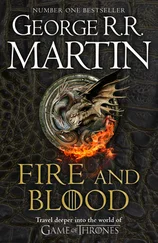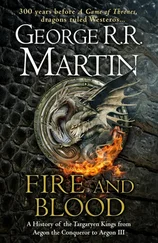In the west, Lady Johanna Lannister hoped to follow her victory at Kayce by striking another blow against the Red Kraken. Assembling a ragtag fleet of fishing boats and cogs beneath the walls of Feastfires, she loaded a hundred knights and three thousand men-at-arms aboard, and sent them out to sea under the cover of darkness to retake Fair Isle from the ironmen. The plan was to land them undetected on the south end of the island, but someone had betrayed them, and the longships were waiting. Lord Prester, Lord Tarbeck, and Ser Erwin Lannister commanded the ill-fated crossing. Dalton Greyjoy sent their heads to Casterly Rock afterward, calling it “payment for my uncle, though in truth he was a glutton and a drunkard, and the islands are well rid of him.”
Yet all these were as naught against the tragedy that descended on the court and king. On the twenty-second day of the ninth moon of 133 AC, Jaehaera of House Targaryen, Queen of the Seven Kingdoms and the last surviving child of King Aegon II, perished at the age of ten. The little queen died just as her mother, Queen Helaena, had, throwing herself from a window in Maegor’s Holdfast onto the iron spikes that lined the dry moat below. Impaled through breast and belly, she twisted in agony for half an hour before she could be lifted free, whereupon she passed from this life at once.
King’s Landing grieved, as only King’s Landing could. Jaehaera had been a frightened child, and from the day she donned her crown she had hidden herself away inside the Red Keep, yet the smallfolk of the city remembered her wedding, and how brave and beautiful the little girl had seemed, and so they wept, and wailed, and tore their clothes, and crowded into septs and taverns and brothels, to seek for whatever solace they could find. There the whispers soon were flying, just as they had when Queen Helaena died in similar fashion. Had the little queen truly taken her own life? Even inside the walls of the Red Keep, speculation was rampant.
Jaehaera was a lonely child, prone to weeping and somewhat simpleminded, yet she had seemed content in her own chambers with her maids and ladies, her kittens and her dolls. What could have made her mad enough or sad enough to leap from her window onto those cruel spikes? Some suggested that Lady Rhaena’s miscarriage might have made her so distraught she did not wish to live. Others, of a more cynical bent, countered that it might have been jealousy over the child growing inside of Lady Baela that drove her to the act. “It was the king,” whispered still others. “She loved him with all her heart, yet he paid her no mind, showed her no affection, did not even share his rooms with her.”
And of course there were many who refused to believe that Jaehaera had taken her own life. “She was murdered,” they whispered, “just as her mother was.” But if that were true, who was the murderer?
There was no lack of suspects. By tradition, there was always a knight of the Kingsguard posted at the queen’s door. It would have been a simple thing for him to slip inside and throw the child from her window. If so, surely the king himself had given the command. Aegon had tired of her weeping and wailing and wanted a new wife, men said. Or perhaps he wished to revenge himself on the daughter of the king who killed his mother. The boy was dour and gloomy, no one truly knew his nature. Tales of Maegor the Cruel were freely told.
Others blamed one of the little queen’s companions, Lady Cassandra Baratheon. The eldest of the “Four Storms,” Lady Cassandra had been briefly betrothed to King Aegon II during the last year of his life (and possibly to his brother Aemond One-Eye before that). Disappointment had turned her sour, her detractors said; once her father’s heir at Storm’s End, she found herself of little account in King’s Landing, and bitterly resented having to care for the weepy, feeble-witted child queen whom she blamed for all her woes.
One of the queen’s bedmaids also came under suspicion, when it was found that she had stolen two of Jaehaera’s dolls and a pearl necklace. A serving boy who had spilled soup on the little queen the year before, and been beaten for it, was accused. Both of these were put to question by the Lord Confessor, and finally declared innocent (though the boy died under questioning and the girl lost a hand for theft). Even holy servants of the Seven were not above suspicion. A certain septa in the city had once been heard to say that the little queen ought never to have children, for simpleminded women produced simpleminded sons. The gold cloaks brought her in as well, and she vanished into a dungeon.
Grief makes men mad. With hindsight, we can say for a fair certainty that none of these played any role in the sad death of the little queen. If indeed Jaehaera Targaryen was murdered (and there is no shred of proof of that), it was surely done at the behest of the only truly plausible culprit: Unwin Peake, Lord Regent, Lord of Starpike, Lord of Dunstonbury, Lord of Whitegrove, Protector of the Realm, and Hand of the King.
Lord Peake was known to have shared his predecessor’s concerns about the succession. Aegon III had no children, nor any living siblings (so far as it was known), and any man with eyes could see that the king was not like to get an heir from his little queen. Unless he did, the king’s half-sisters remained his nearest kin, but Lord Peake was not about to allow a woman to ascend the Iron Throne, after having so recently fought and bled to prevent that very thing. If either of the twins produced a son, to be sure, the boy would at once become first in the order of succession…but Lady Rhaena’s pregnancy had ended in miscarriage, which left only the child growing inside Lady Baela on Driftmark. The thought that the crown might pass to “the whelp of a wanton and a bastard” was more than Lord Unwin Peake was prepared to stomach.
Were the king to sire an heir of his own body, that calamity might be averted…but before that could happen, Jaehaera had to be removed so Aegon could remarry. Lord Peake could not have pushed the child from the window himself, to be sure, as he was elsewhere in the city when she died…but the Kingsguard posted at the queen’s door that night was Mervyn Flowers, his bastard brother.
Could he have been the Hand’s catspaw? It is more than possible, particularly in light of later events, which we shall discuss in due course. Bastard born himself, Ser Mervyn was regarded by most a dutiful, if not especially heroic, member of the Kingsguard; neither champion nor hero, but a seasoned soldier and a fair hand with a longsword, a leal man who did as he was told. Not all men are as they seem, however, particularly in King’s Landing. Those who knew Flowers best saw other sides of him. When not on duty, he was fond of wine, says Mushroom, who was known to have drunk with him. Though sworn to chastity, he seldom slept alone save in his cell at White Sword Tower; despite being somewhat ill-favored, he had a rough charm that washerwomen and serving girls responded to, and when in his cups would even boast of having bedded certain highborn ladies. Like many bastards, he was hot of blood and quick to anger, seeing slights where none had been intended.
Yet none of this suggested that Flowers was the sort of monster who could take a sleeping child from her bed and throw her to a grisly death. Even Mushroom, ever ready to think the worst of everyone, says as much. If Ser Mervyn had killed the queen, he would have done it with a pillow, the fool insists…before suggesting a far more sinister and likely possibility. Flowers would never have pushed the queen out that window, the dwarf claims, but he might well have stood aside to allow someone else to enter her room, if that someone were known to him…someone, mayhaps, like Tessario the Thumb, or one of the Fingers. Nor would Flowers have felt the need to ask their business with the little queen, not if they said they came at the Hand’s behest.
Читать дальше
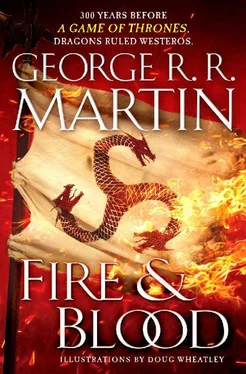
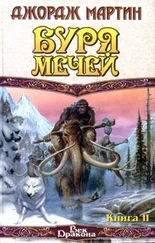
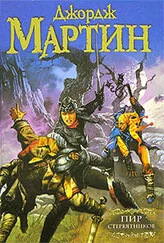

![Джордж Мартин - Сыны Дракона [лп]](/books/33039/dzhordzh-martin-syny-drakona-lp-thumb.webp)
